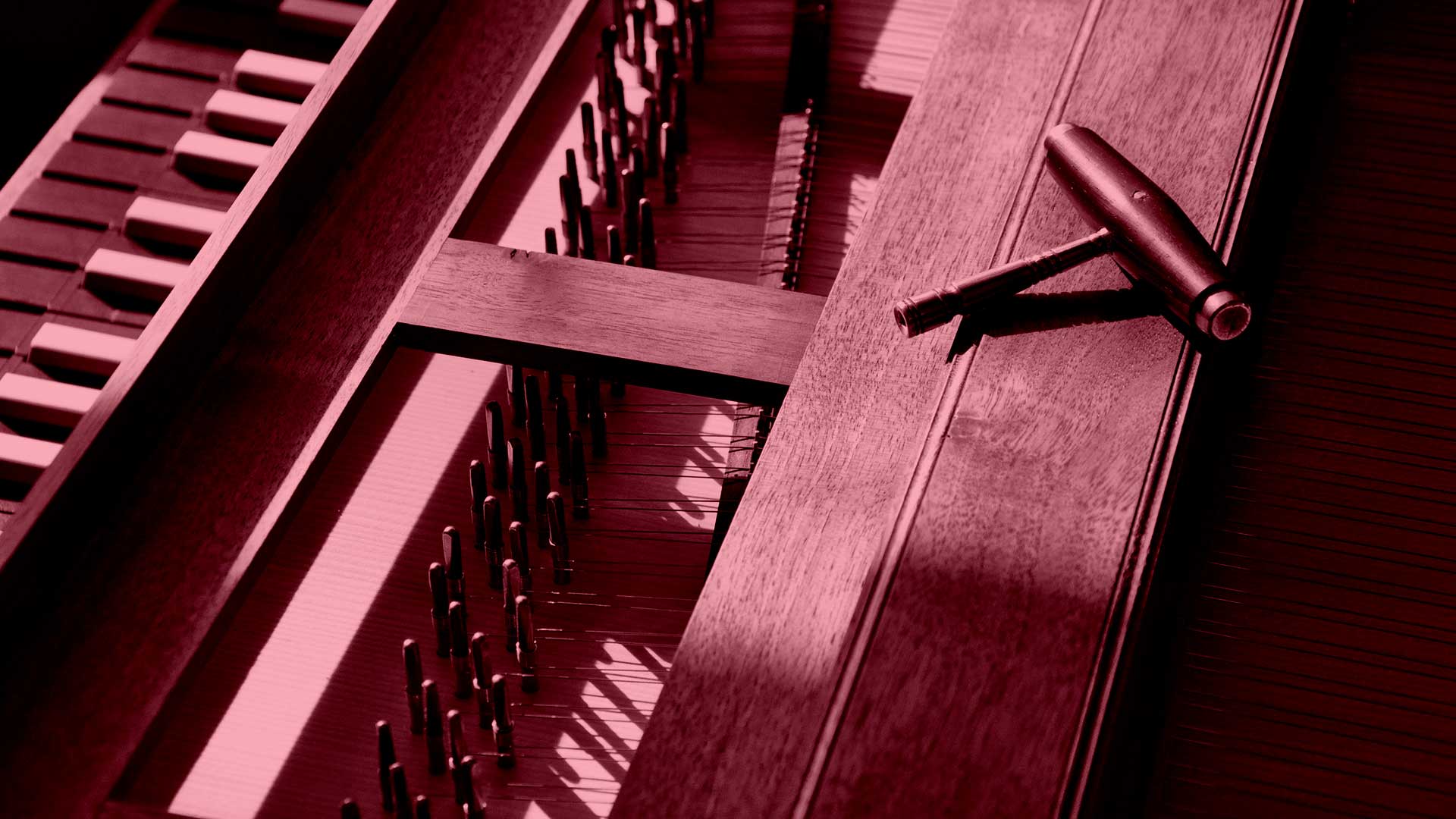Performance: early music

The specialty of early music is oriented towards the interpretation of the western repertoire from the 16th century to the beginning of the 19th, although seminars on medieval music and others on the contemporary application of ancient instruments are also held. There are two major groups: one that spans the 16th and 17th centuries and the other that spans the 18th and early 19th centuries. Each specialty has its own specific instrumental formations in the form of small or large ensembles, as well as baroque and classical orchestra.
| Harmonic instruments: Harps, Harpsichord, Fortepiano, Plucked String Instruments |
| Melodic instruments and percussion: Clarinet, Double Bass/Violone, Cornet, Bassoon, Recorder, Flute, Oboe, Percussion, Sackbut, Natural Horn, Viola de gamba, Viola, Violin, Cello |
| Historical voice |
When you graduate in early music performance, you will be able to practice musical analysis and thinking, and you will have a solid methodological and humanistic training that will help you in the research task related to this. speciality. You can work in a variety of work contexts, such as:
You will also have access to postgraduate training and other fields such as teaching, publishing and music criticism.
The curriculum is made up of basic training subjects, compulsory specialization subjects, electives and final degree work.
Compulsory subjects include subjects such as:
The training, given by highly qualified teachers, is complemented by technical and theoretical content, with an emphasis on the study of historical sources and subjects related to musicology. To facilitate access, the school has a considerable number of instruments that are reproductions of historical prototypes.
For more information, see this program’s curriculum:
| Harmonic instruments: Harps, Harpsichord, Fortepiano, Plucked String Instruments |
| Melodic instruments and percussion: Clarinet, Double Bass/Violone, Cornet, Bassoon, Recorder, Flute, Oboe, Percussion, Sackbut, Natural Horn, Viola de gamba, Viola, Violin, Cello |
| Historical voice |
This specialty brings together the most specialized studies in Early Music Interpretation and the complementary training of students from other fields. Our professors represent a wide range of individual choices to achieve professional excellence in specific areas.
Alba Roca Pagerols, historical violin.
Eduard Martínez Borruel, harpsichord.
Emmanuel Balssa, viola da gamba / historical violoncello.
Francesc Garrigosa Massana, historical voice.
Francisco Fernando Rubio Martínez, Improvisations.
Germán Echeverri, historical violin / historical viola.
Javier Artigas, musical analysis.
Joaquim Guerra, historical bassoons.
Josep Domènech, historical oboe.
Jordi Giménez Puig, sackbutt.
Josep Maria Martí Duran, historical plucked instruments.
Lambert Climent Belenguer, historical voice.
Lluís Coll Trulls, cornetto.
Lorenzo Coppola, historical clarinet.
Luca Guglielmi, harpsichord / fortepiano.
Luis Martínez Pueyo, traverso.
Manfredo Kraemer, historical violin.
Mara Galassi, historical harps.
Marta Almajano Laglera, historical voice.
Oleguer Aymamí Busqué, historical violoncello.
Pedro Estevan Estevan, historical percussion.
Pedro Memelsdorff, recorder.
Pierre Antoine Tremblay, horn
Xavier Blanch Mezquiriz, historical oboe.
Xavier Puertas Esteve, historical double bass.
Those students who want to continue their studies at the ESMUC once graduated, they can enroll in one of the master’s degrees offered by the School.
Studies of the same specialty

Do you need more information?